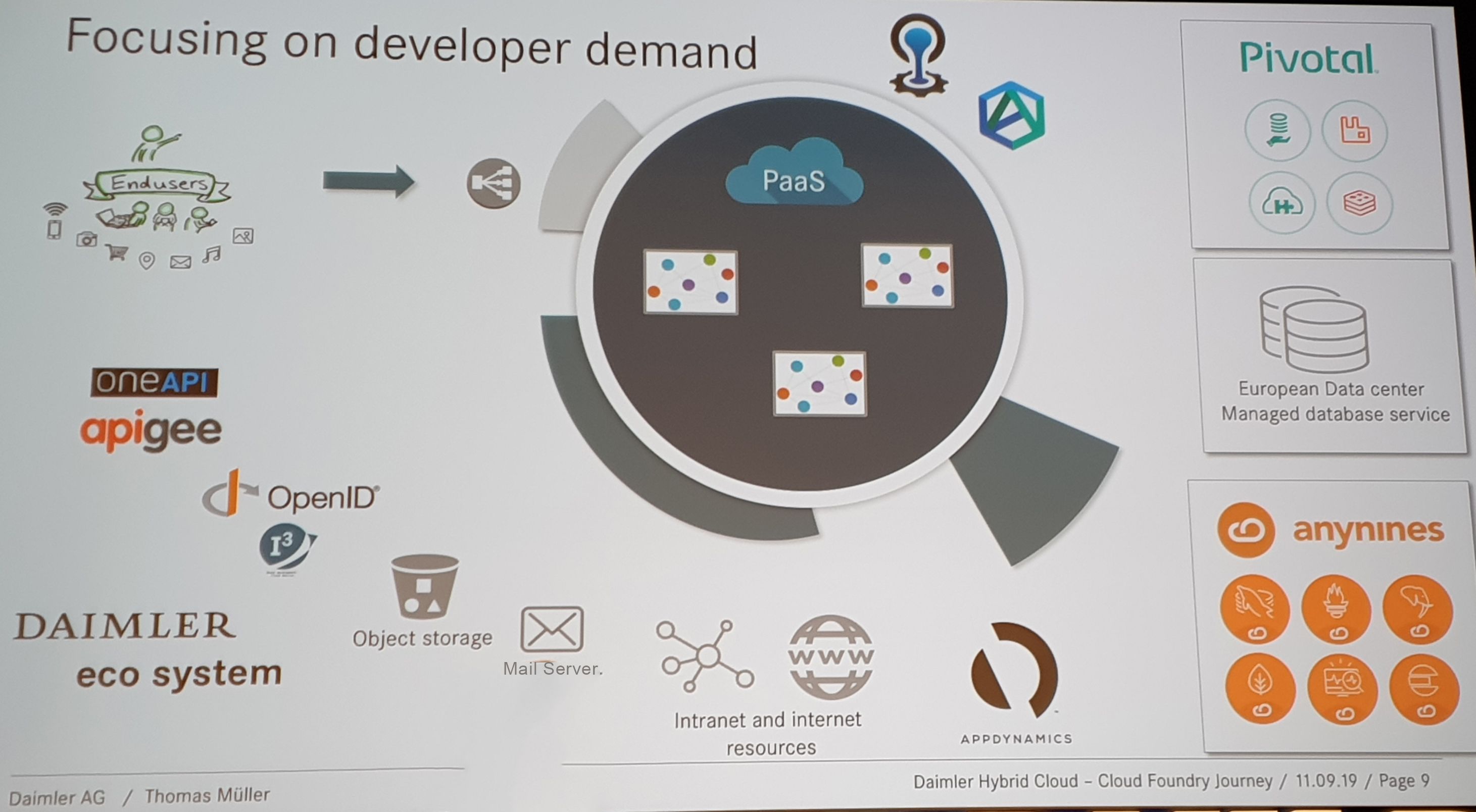At the Cloud Foundry Summit, a few clients had the opportunity to speak on stage. The German car group, Daimler, owner of Mercedes and Smart, was able to return to its IBM WebSphere migration to PaaS
.

Live from The Hague. Based in Stuttgart, Daimler is the car group that owns the Mercedes and Smart brands in particular. With 3.4 million vehicles sold worldwide in 2018, the group generated just over 167 billion euros in revenue last year. And among the nearly 300,000 employees in this group, several teams of solution architects and even IT consulting divisions for specific applications applications. At the Cloud Foundry convention , Thomas Müller, Daimler's cloud platform architect, testified about the group's IS transition to a hybrid cloud solution managed by Pivotal.
In 2015, the group is approached by Pivotal to transform its monolithic architecture based on IBM WebSphere to a micro-services model with Cloud Foundry. The idea was to create a hybrid cloud by placing data and applications on-site in containers to link them to the solutions and information stored in the four clouds that the group uses (Azure, AWS, IBM Cloud and Alibaba Cloud) via PaaS Cloud Foundry and DevOps tools used by Daimler developers (GitHub, Jenkins, Elastic / Kibana, Artifactory, Sonarcube).
First PoC mid-2018
Discussions between the architects and the business teams led to several requests. Daimler needed a stable product with available support, process automation, separation between platform operations and applications. Thus, in mid-2018, the first PoC was launched, with the help of Anynines for training, integration and support during deployment. Thomas Müller warns, however, on stage, the difficulties that the group may have encountered during the deployment of Cloud Foundry in its IS. Notably the fact that Daimler is an old company, with these long-standing processes. A lot of administrative work had to be done during the deployment. The mentalities had to evolve too, it was necessary to stop thinking in silos, and to bring a different digital culture.

However, the deployment of the Daimler hybrid platform took place in March 2019. In September, 50 applications run on this platform. Including the Mercedes Me application, which offers users to upload data on their vehicle, maintenance and diagnostic services, remote assistance to park, etc. For developers, deploying Cloud Foundry has brought them a more agile DevOps workflow, which now allows them to focus on developing applications like Mercedes Me, without having to worry about infrastructure. From a business perspective, application launch time has been reduced and application updates are being pushed faster.